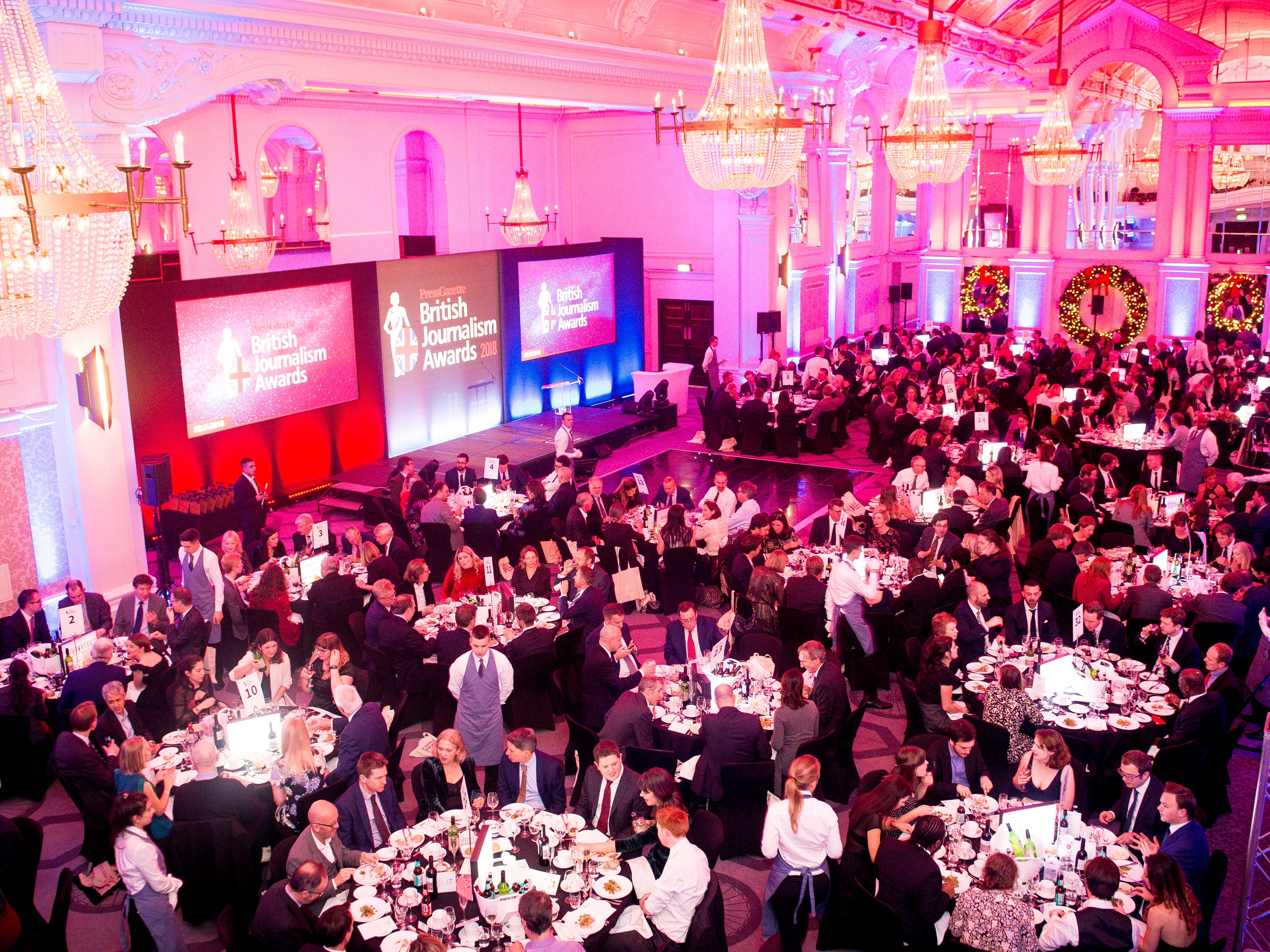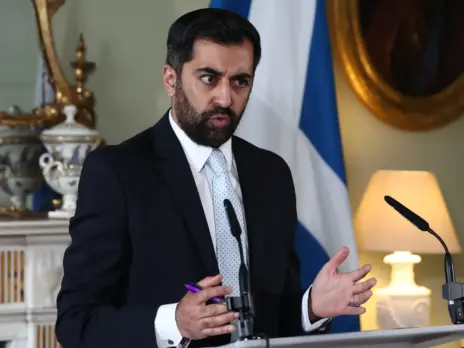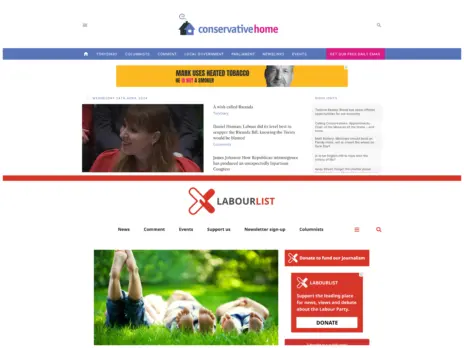
Press Gazette is proud to launch the British Journalism Awards for 2019.
This is the only major journalism awards event in the UK which is open to all journalists, regardless of medium, and which has a focus on recognising work which is both interesting to the public and in the public interest.
Last year saw the Financial Times named News Provider of the Year and The Guardian’s Amelia Gentleman (pictured) crowned Journalist of the Year for her investigation into the treatment of Windrush immigrants.
Carole Cadwalladr of The Observer won the Technology Journalism Prize and was joint winner of Investigation of the Year for her work on the Cambridge Analytica Files.
Other winners included imprisoned Reuters journalists Wa Lone and Kyaw Soe Oo (foreign affairs journalism), Patrick Strudwick of Buzzfeed News (specialist journalism) and Duncan Leatherdale of BBC News (features journalism).
There were more than 400 entries representing every major news organisation in the UK.
See the full list of winners for the 2018 British Journalism Awards here.
New venue and categories
This year the event is moving to a new venue: The Hilton Bankside in central London. The awards dinner will be held on 10 December.
Entries will open from 1 August. Work must have been published or broadcast between 1 September 2018 and 31 August 2019 to qualify for entry.
More than 50 senior journalists chosen for their independence and expertise comprise the judging panel.
This year two new categories have been added: Interviewer of the Year, and Crime and Legal Affairs.
The latter has been added because the judges felt that the range and quality of entries in this area received last year meant that this specialism deserved its own category. Interviewer of the Year has been added in response to feedback from the industry.
Science and Health have been separated out into two distinct categories this year.
The British Journalism Awards for Specialist Journalism will not be taking place this year, but the Specialist Journalism Prize for the British Journalism Awards is now only open to specialist news outlets.
Press Gazette editor in chief and chairman of judges Dominic Ponsford said: “After a vintage year for investigative and public interest journalism in 2018, we are proud to launch the 2019 awards and can’t wait to get the judging process underway.
“Following the findings of the Cairncross Review this year, the debate over how we fund high-quality journalism in the digital age remains very much a live issue.
“This event will once again provide a showcase for the best journalism in the UK that has made a difference for the better in society.
“Like the journalism itself, the judging process strives to be utterly impartial and is conducted without fear or favour.
“As before, the judges will be looking to recognise work which is revelatory, shows journalistic skill and rigour and which serves the public interest.”
Categories and criteria for the British Journalism Awards 2019
Arts and Entertainment
For the journalist who has done the most to probe and investigate the worlds of showbiz, the arts and entertainment.
The judges are looking for work which shows journalistic skill and rigour, is revelatory and which serves the public interest.
For print/online entries, please provide up to three examples of work. Broadcasters can submit up to three clips or one entire programme in support of their entry. A supporting statement of up 500 words must also be included.
Collaborative entries are accepted. Work should have been published between 1 September 2018 and 30 September 2019 and aimed at a UK audience.
Business Finance and Economics Journalism
For the journalist who has done the most to probe and investigate the world of business.
The judges are looking for work which shows journalistic skill and rigour, is revelatory and which serves the public interest.
For print/online entries, please provide up to three examples of work. Broadcasters can submit up to three clips or one entire programme in support of their entry. A supporting statement of up 500 words must also be included.
Collaborative entries are accepted. Work should have been published between 1 September 2018 and 30 September 2019 and aimed at a UK audience.
Campaign of the Year
For the series of articles, broadcasts or digital project which has done the most to make a difference in society and serve the public interest.
You cannot enter the same work in the Campaign and Investigation categories. Judges will be looking for evidence of a campaign’s impact, originality, bravery, skill of execution and at how journalism has been used to further the campaign’s objectives.
For print/online entries, please provide up to five examples of work. Broadcasters can submit up to five clips or one entire programme in support of their entry. A supporting statement of up 500 words must also be included.
Work should have been published between 1 September 2018 and 30 September 2019 and aimed at a UK audience.
Interviewer of the Year
For the journalist who has done the most to bring new information to light through interviews.
The judges are looking for work which shows journalistic skill and rigour, is revelatory and which serves the public interest.
For print/online entries, please provide up to three examples of work. Broadcasters can submit up to three clips or one entire programme in support of their entry. A supporting statement of up 500 words must also be included.
Collaborative entries are accepted. Work should have been published between 1 September 2018 and 30 September 2019 and aimed at a UK audience.
Comment Journalism
This category recognises the best comment journalist of the year.
The judges are looking for the most incisive comment which has brought new ideas and thinking to bear when discussing a matter of public interest.
For print/online entries, please provide up to three examples of work. Broadcasters can submit up to three clips or one entire programme in support of their entry. A supporting statement of up 500 words must also be included.
Collaborative entries are accepted. Work should have been published between 1 September 2018 and 30 September 2019 and aimed at a UK audience.
Crime and legal affairs
This category is for the best journalism covering crime, courts and the law.
The judges are looking for work which shows journalistic skill and rigour, is revelatory and which serves the public interest.
For print/online entries, please provide up to three examples of work. Broadcasters can submit up to three clips or one entire programme in support of their entry. A supporting statement of up 500 words must also be included.
Collaborative entries are accepted. Work should have been published between 1 September 2018 and 30 September 2019 and aimed at a UK audience.
Features
This award is for the best features journalist of the year.
It rewards excellent journalism on a matter of public interest which could be descriptive or of a human interest nature and shows evidence of fine writing.
This category is not intended for investigations or comment.
The judges are looking for work which shows journalistic skill and rigour, is revelatory and which serves the public interest.
For print/online entries, please provide up to three examples of work. Broadcasters can submit up to three clips or one entire programme in support of their entry. A supporting statement of up 500 words must also be included.
Collaborative entries are accepted. Work should have been published between 1 September 2018 and 30 September 2019 and aimed at a UK audience.
Foreign Affairs
For the journalist working for a UK audience, whose reports from overseas have done the most to serve the public interest.
The judges are looking for work which shows journalistic skill and rigour, is revelatory and which serves the public interest.
For print/online entries, please provide up to three examples of work. Broadcasters can submit up to three clips or one entire programme in support of their entry. A supporting statement of up 500 words must also be included.
Collaborative entries are accepted. Work should have been published between 1 September 2018 and 30 September 2019 and aimed at a UK audience.
Health and Life Sciences Journalism
This category is for journalists who cover health and life sciences industries.
The judges are looking for work which shows journalistic skill and rigour, is revelatory and which serves the public interest.
For print/online entries, please provide up to three examples of work. Broadcasters can submit up to three clips or one entire programme in support of their entry. A supporting statement of up 500 words must also be included.
Collaborative entries are accepted. Work should have been published between 1 September 2018 and 30 September 2019 and aimed at a UK audience.
Innovation
This category is for the best journalism innovation of the year.
The judges are looking for a project which brings new information to light on a matter of public interest either directly or indirectly by creating a new stream of revenue.
Innovative digital storytelling can be submitted in this category but it is also open to print and broadcast work.
Suitable entries could include:
- A new editorial product or method of storytelling which has found a new audience
- An innovative way of investigating a story
- A paywall or other commercial strategy which helps to pay for journalism.
Please provide a supporting statement of up to 500 words. For print/online entries please submit up to five supporting articles. Broadcasters should submit up to five clips or one entire programme to support their entry.
This innovation should either have been launched between September 1 2018 and September 30 2019 or have borne fruit in that time period.
Investigation of the Year
This award is for the most incisive and revelatory public interest investigation of the year.
The judges will be looking for work which is compelling and which brings significant new information to light on a matter of public interest. You cannot enter the same work in the Campaign and Investigation categories.
The judges are looking for work which shows journalistic skill and rigour, is revelatory and which serves the public interest.
For print/online entries, please provide up to five examples of work. Broadcasters can submit up to five clips or one entire programme in support of their entry. A supporting statement of up 500 words must also be included.
Collaborative entries are accepted. Work should have been published between 1 September 2018 and 30 September 2019 and aimed at a UK audience.
Local Journalism
This category is for the best journalism at a local and regional level.
It is open to local newspapers, websites and broadcast outlets. Those working for news outlets aimed at a national audience cannot enter this category.
Journalists can enter this category as individuals or teams. They may want to highlight one particular project, investigation, campaign or a linked series of news stories.
The judges are looking for work which has done the most to bring new information to light on a matter of public interest and for journalism which has made a difference for the better at a local level.
For print/online entries, please provide up to three examples of work. Broadcasters can submit up to three clips or one entire programme in support of their entry. A supporting statement of up 500 words must also be included.
Collaborative entries are accepted. Work should have been published between 1 September 2018 and 30 September 2019 and aimed at a UK audience.
New Journalist of the Year
This award is for a relative newcomer to the industry (who may have worked in other jobs before) and has been a journalist for fewer than 36 months.
The judges will be looking for work which is compelling and which brings significant new information to light on a matter of public interest.
For print/online entries, please provide up to three examples of work. Broadcasters can submit up to three clips or one entire programme in support of their entry. A supporting statement of up 500 words must also be included.
Collaborative entries are accepted. Work should have been published between 1 September 2018 and 30 September 2019 and aimed at a UK audience.
Photojournalism
For the photographer whose work has done the most to serve the public interest.
Please submit up to three photos (as jpeg files). Entrants can also provide PDFs of the images as they appeared in print or online. There is a six-file limit per entry.
Please also include a supporting statement of up to 500 words.
Politics Journalism
This category is for the best politics journalism published in any format aimed at a mainly UK audience.
The judges are looking for work which shows journalistic skill and rigour, is revelatory and which serves the public interest.
For print/online entries, please provide up to three examples of work. Broadcasters can submit up to three clips or one entire programme in support of their entry. A supporting statement of up 500 words must also be included.
Collaborative entries are accepted. Work should have been published between 1 September 2018 and 30 September 2019 and aimed at a UK audience.
Science Journalism
This award is for journalists who cover science and the environment.
The judges are looking for work which shows journalistic skill and rigour, is revelatory and which serves the public interest.
For print/online entries, please provide up to three examples of work. Broadcasters can submit up to three clips or one entire programme in support of their entry. A supporting statement of up 500 words must also be included.
Collaborative entries are accepted. Work should have been published between 1 September 2018 and 30 September 2019 and aimed at a UK audience.
Scoop of the Year
This is the prize for the best story of the year (news providers can enter only one story for this award).
The judges are looking for work which had an impact, brought new information to light and served the public interest.
Please include a supporting statement of up 500 words. Work should have been published between 1 September 2018 and 30 September 2019 and aimed at a UK audience.
Specialist Journalism
This category is aimed at specialist and trade publications. Specialist journalists working in other media can enter if they are not covered by one of the other categories.
The judges are looking for work which shows journalistic skill and rigour, is revelatory and which serves the public interest.
For print/online entries, please provide up to three examples of work. Broadcasters can submit up to three clips or one entire programme in support of their entry. A supporting statement of up 500 words must also be included.
Collaborative entries are accepted. Work should have been published between 1 September 2018 and 30 September 2019 and aimed at a UK audience.
Sports Journalism
This is for the sports journalist who has done the most to investigate the world of sport and serve the public interest.
The judges are looking for work which shows journalistic skill and rigour, is revelatory and which serves the public interest.
For print/online entries, please provide up to three examples of work. Broadcasters can submit up to three clips or one entire programme in support of their entry. A supporting statement of up 500 words must also be included.
Collaborative entries are accepted. Work should have been published between 1 September 2018 and 30 September 2019 and aimed at a UK audience.
Technology Journalism
For the journalist who has done the most over the course of the year to investigate the world of technology.
The judges are looking for work which shows journalistic skill and rigour, is revelatory and which serves the public interest.
For print/online entries, please provide up to three examples of work. Broadcasters can submit up to three clips or one entire programme in support of their entry. A supporting statement of up 500 words must also be included.
Collaborative entries are accepted. Work should have been published between 1 September 2018 and 30 September 2019 and aimed at a UK audience.
News Provider of the Year
For the news organisation which has done the most to provide journalism that is both interesting to the public and in the public interest.
This category is open to newspapers, magazines, websites and broadcast outlets. News channels, news agencies and particular broadcast journalism strands are all eligible.
The award will recognise a news provider that has excelled in terms of serving the public interest and bringing new information to light.
The judges are looking for a news provider which stands out because of the quality of its investigative journalism and ability to break news on matters of public interest.
For print/online entries, please provide up to ten examples of work. Broadcasters can submit up to ten clips or one entire programme in support of their entry. A supporting statement of up 500 words must also be included.
Work should have been published between 1 September 2018 and 30 September 2019 and aimed at a UK audience.
Journalist of the Year
This award is for the journalist who, more than any other, deserves recognition for their outstanding individual performance over the year.
The judges are looking for work which shows journalistic skill and rigour, is revelatory and which serves the public interest.
For print/online entries, please provide up to five examples of work. Broadcasters can submit up to five clips or one entire programme in support of their entry. A supporting statement of up 500 words must also be included.
Collaborative entries are accepted. Work should have been published between 1 September 2018 and 30 September 2019 and aimed at a UK audience.
The Marie Colvin Award
This category was launched in memory of the late Sunday Times foreign correspondent Marie Colvin who was killed reporting on the plight of people in the besieged Syrian city of Homs in 2012.
It is free to enter and anyone can make a nomination.
The judges are looking for a journalist who has raised the reputation of journalism and journalists through their efforts to bear witness to events in the way that Colvin did.
Please submit a supporting statement and up to five examples of work which can be either from the last year or over a longer time period.
Video of the 2017 British Journalism Awards:
Email pged@pressgazette.co.uk to point out mistakes, provide story tips or send in a letter for publication on our "Letters Page" blog






